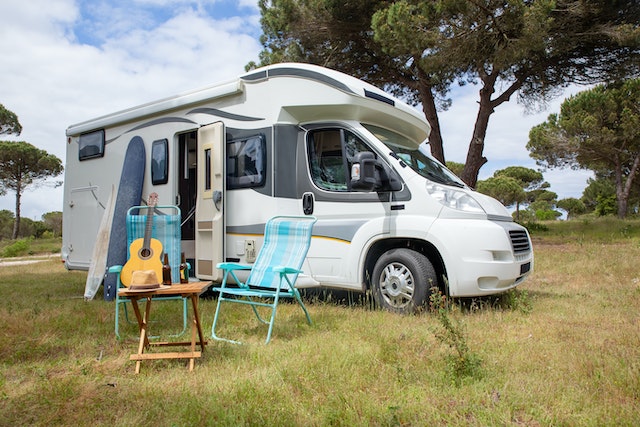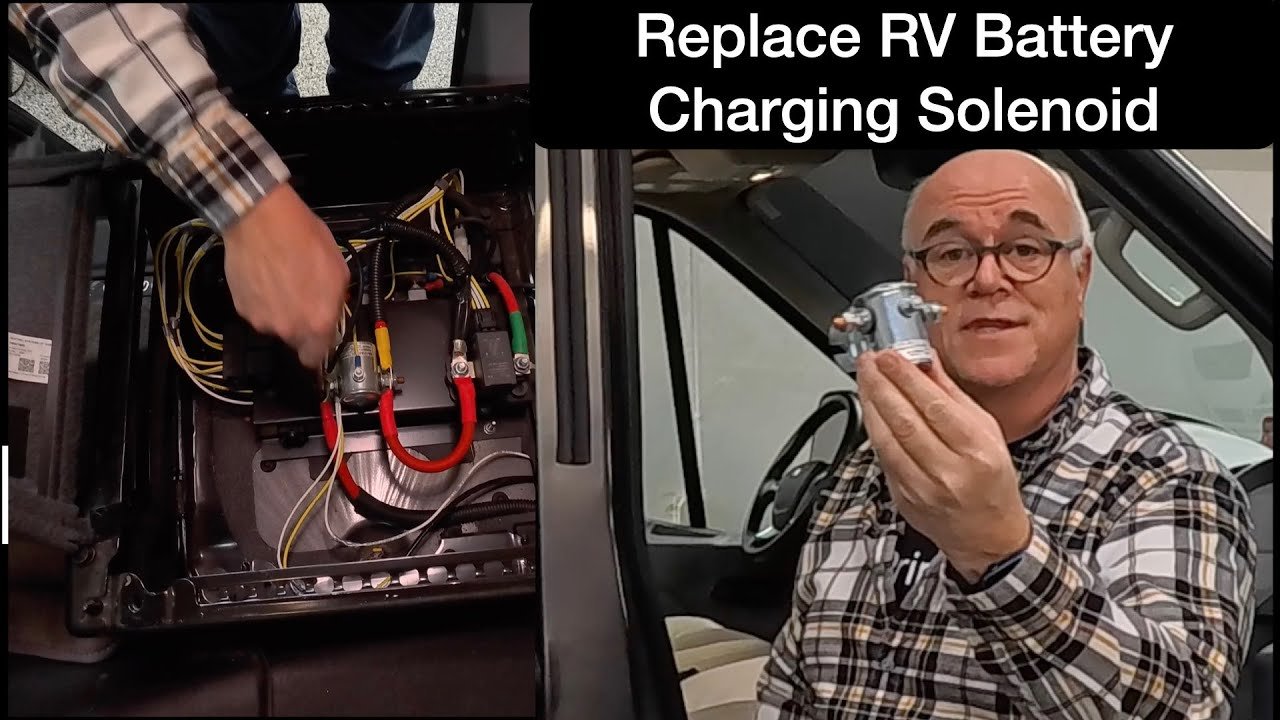Is your RV battery not charging while driving? This issue can ruin a road trip.
Many RV owners face this problem. It can be frustrating and confusing. There could be several reasons for this issue. Maybe there’s a problem with the alternator. Or, it could be a wiring issue. Sometimes, it is as simple as a blown fuse.
Understanding these potential problems is key to fixing them. In this blog post, we will explore common reasons why your RV battery might not charge while driving. We will also offer some practical solutions. So, let’s dive in and get your RV battery back on track.

Credit: www.youtube.com
Common Causes
Is your RV battery not charging while driving? This issue can stem from several common causes. Understanding these can help you diagnose and fix the problem.
Faulty Alternator
A faulty alternator is a common cause of a battery not charging. The alternator charges the battery while the engine runs. If it fails, your battery will not receive the necessary charge. Signs of a faulty alternator include:
- Dim headlights
- Slow engine cranking
- Warning light on the dashboard
To confirm a faulty alternator, use a multimeter. Check the voltage at the battery terminals. A healthy alternator should produce between 13.8 and 14.4 volts.
Blown Fuses
Blown fuses can also prevent your RV battery from charging. Fuses protect the electrical system from overloads. If a fuse blows, it breaks the circuit, stopping the charge flow.
Check the fuse box for any blown fuses. Replace any blown fuses with new ones of the same rating. Always carry spare fuses in your RV.
Battery Health Check
One common issue RV owners face is the battery not charging while driving. Ensuring your battery’s health is crucial. Regular checks can prevent unexpected problems. This section will guide you through a battery health check.
Visual Inspection
Start with a visual inspection. Look for any signs of damage. Check for corrosion on the terminals. Clean any dirt or grime. Ensure all connections are secure. A loose connection can prevent charging.
Voltage Testing
Next, perform voltage testing. Use a voltmeter for this task. A fully charged battery should read around 12.6 volts. If the reading is lower, the battery may be undercharged. If it’s much lower, consider replacing the battery.
Wiring Issues
Wiring issues can cause your RV battery to stop charging while driving. Faulty wiring disrupts the electrical flow. This leads to an undercharged or non-charging battery. Let’s explore common wiring problems.
Corroded Connections
Corroded connections are a major issue. Corrosion builds up on battery terminals and wires. This creates a barrier for electricity. You may notice a white or blue powdery substance on the terminals.
To address this, clean the terminals with a mix of baking soda and water. Use a wire brush for a thorough clean. Make sure to wear gloves and safety glasses. Regular maintenance prevents corrosion from reoccurring.
Loose Wires
Loose wires also cause charging issues. A loose wire can disconnect the charging circuit. This stops the battery from charging properly.
Check all connections for tightness. Inspect the wires from the alternator to the battery. Also, check the grounding wires. Tighten any loose connections with the appropriate tools. Replace any damaged wires to ensure a solid connection.
Regularly inspecting your RV’s wiring ensures a reliable charging system. Stay proactive to avoid common wiring issues.
Charging System Components
Understanding the components of the charging system is crucial for RV owners. These components ensure that the RV battery charges while driving. Let’s dive into the key parts of the system.
Alternator Function
The alternator is a key component in your RV’s charging system. It converts mechanical energy from the engine into electrical energy. This energy is used to charge the RV battery. If the alternator fails, the battery won’t charge properly. Regular maintenance can help keep the alternator in good condition.
Regulator Role
The voltage regulator controls the amount of voltage sent to the battery. It ensures the battery receives the right amount of charge. Too much voltage can damage the battery. Too little can leave it undercharged. A faulty regulator can lead to charging issues. Checking the regulator can prevent future problems.
Power Management System
The Power Management System in your RV is crucial. It ensures your battery charges while you drive. Without a proper system, the battery might not get enough power. This can leave you stranded. Understanding key components can help you troubleshoot issues.
Inverter/converter
The inverter/converter plays a vital role. It changes DC power to AC power. This is important for running household appliances in your RV. If the inverter/converter fails, your battery may not charge. Check for loose connections or blown fuses. These are common issues.
Battery Isolator
A battery isolator separates the RV battery from the vehicle battery. It ensures the RV battery charges while driving. If the isolator is faulty, the RV battery won’t charge. Inspect the isolator for signs of wear. Replace it if necessary to restore charging.
Driving Habits
Your driving habits have a significant impact on your RV battery’s performance. Understanding how different driving patterns affect the battery can help maintain its charge. Here, we discuss two crucial aspects: short trips and high electrical load.
Short Trips
Short trips can prevent your RV battery from charging fully. This is because the alternator needs time to generate enough power. If you frequently drive short distances, your battery may not receive a full charge.
Consider these tips to mitigate the issue:
- Plan longer routes when possible.
- Allow your engine to run for a few extra minutes.
- Check the battery voltage regularly.
High Electrical Load
A high electrical load can drain your RV battery faster than the alternator can charge it. This includes using multiple devices and appliances simultaneously.
To manage your electrical load:
- Turn off non-essential devices.
- Use energy-efficient appliances.
- Install a secondary battery for high-demand devices.
Balancing your driving habits and electrical load can help ensure your RV battery remains charged.
Environmental Factors
Environmental factors can greatly impact the performance of your RV battery while driving. Two key factors to consider are temperature extremes and humidity levels. Understanding these elements can help in troubleshooting and maintaining your battery’s health.
Temperature Extremes
Temperature extremes can affect your RV battery’s efficiency. High temperatures can cause the battery to overheat. This can lead to reduced lifespan and performance. On the other hand, cold temperatures can slow down the chemical reactions in the battery. This makes it harder for the battery to hold a charge. Always monitor the temperature and protect your battery from extreme conditions.
Humidity Levels
Humidity levels also play a significant role in battery performance. High humidity can lead to condensation. This may cause corrosion on the battery terminals. Corrosion can interfere with the charging process. Low humidity, while less harmful, can dry out the battery cells. This reduces their effectiveness. Keeping your battery dry and clean can help maintain its functionality.
Preventive Maintenance
Preventive maintenance is essential for keeping your RV battery in top shape. It ensures your battery charges properly while driving. Simple, regular checks can prevent sudden battery failures. Here, we focus on key areas of preventive maintenance.
Regular Inspections
Regular inspections are crucial for maintaining your RV battery. Check the battery terminals for corrosion. Clean any buildup using a mixture of baking soda and water. Examine the battery casing for any cracks or leaks. Make sure the battery is securely mounted. Loose batteries can lead to damage.
Inspect the wiring connected to the battery. Look for frayed or damaged wires. Replace any that show signs of wear. Ensure all connections are tight. Loose connections can hinder charging. Regular inspections help identify issues early, before they become bigger problems.
Scheduled Replacements
Batteries have a limited lifespan. Schedule replacements to avoid unexpected failures. Most RV batteries last between 3 to 5 years. Check the manufacturer’s guidelines for your specific battery. Keeping track of your battery’s age helps you plan timely replacements.
Older batteries may not hold a charge as well. They can struggle to charge while driving. Replacing the battery before it fails ensures reliable performance. It also prevents potential damage to other electrical components. Scheduled replacements are a key part of preventive maintenance.
Professional Assistance
When your RV battery isn’t charging while driving, it can be frustrating. Sometimes, the issue may need professional help. Knowing when to call a technician and how to choose a reliable service is key.
When To Call A Technician
If your RV battery is not charging despite your best efforts, it might be time to call a technician. Here are some signs:
- Battery voltage is low even after a long drive
- Visible damage or corrosion on battery terminals
- Strange noises or smells from the engine area
- Dashboard warning lights related to the charging system
These issues can indicate deeper problems. A professional can diagnose them accurately.
Choosing A Reliable Service
Finding a trustworthy technician is crucial. Consider these tips:
| Criteria | Details |
|---|---|
| Experience | Look for technicians with RV-specific experience. |
| Reviews | Read customer reviews online to gauge reliability. |
| Certifications | Check for professional certifications and licenses. |
| Warranty | Ask if they offer a warranty on their services. |
Following these tips can help you find a reliable service. This ensures your RV battery is fixed properly and efficiently.

Credit: www.rvdoctor.com

Credit: harveypoweress.com
Frequently Asked Questions
Why Is My Rv Battery Not Charging While Driving?
There could be several reasons. The alternator might be faulty, connections could be loose, or there might be a blown fuse.
How To Troubleshoot Rv Battery Charging Issues?
Start by checking the alternator, wiring connections, and fuses. Ensure all components are in good working order.
Can A Faulty Alternator Cause Battery Charging Issues?
Yes, a faulty alternator can prevent the RV battery from charging properly while driving.
How Often Should I Check My Rv Battery?
Check your RV battery regularly, at least once a month, to ensure it is charging correctly.
Conclusion
Maintaining a healthy RV battery is crucial. Check connections regularly. Ensure your alternator works well. Keep terminals clean. Don’t ignore warning signs. Simple steps can prevent issues. Safe travels with a reliable battery enhance your journey. Proper care ensures a smooth drive.
Enjoy your adventures without power worries.





